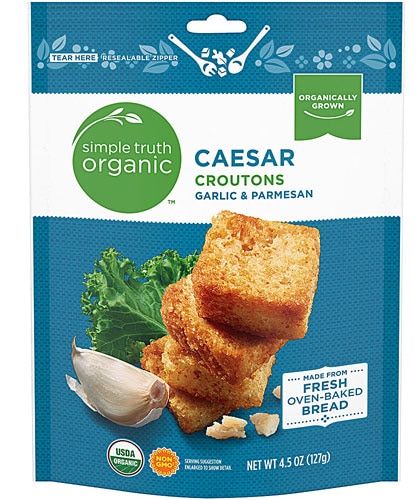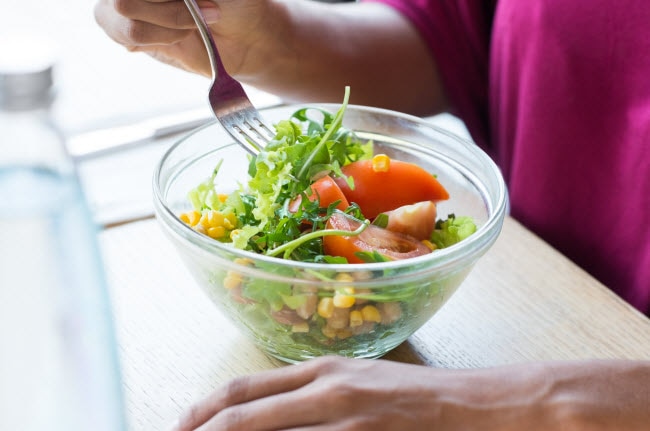The report card is in: America gets a failing grade when it comes to eating enough vegetables.
Depending on your age, you should eat between 2 to 3 cups of vegetables each day. And yet 91 percent of Americans fall short of this goal, according to the Centers for Disease Control and Prevention.
Eating vegetables is crucial to warding off illness and disease. Vegetables provide vitamins, minerals and fiber that can lower your risk of heart disease, diabetes, cancer, obesity and other ailments, the CDC says.
Eating more salads is one of the best ways to add vegetables to your diet. May is National Salad Month, making it the perfect time to bring more greens into your diet.
But while salads themselves are healthful, you can quickly ruin their positive effects by adding the wrong “extras,” says Lizzie Streit, a Minneapolis-based registered dietitian nutritionist and creator of It's a Veg World After All.
For example, many salad dressings are loaded with unhealthful added sugars or processed vegetable oils, like soybean oil.
To make matters worse, some people add calorie-laden, sodium-soaked or artery-clogging toppings to their salads, such as:
- Fried tortilla chips or sesame sticks
- Dried fruit with added oils and sugar
- Processed bacon bits
- Fat-free dressings
- Candied nuts
“These foods do not provide much nutrients and contain unnecessary ingredients that are not healthful,” Streit says.
A more healthful salad
Instead of sabotaging your salad, turn to more healthful ways of giving those vegetables a flavorful kick.
Streit urges you to stick with homemade dressings made with olive oil, vinegar, and herbs and spices. If you eat a salad in a restaurant, try to resist the lure of unhealthful toppings and reach for better alternatives.
“Most salad bars have oil and vinegar out next to the store-bought dressings,” she says.
Streit also says it can be a mistake to gravitate to fat-free dressings, even if they sound better for you. “Your body needs some healthy fat to absorb the nutrients in salad greens and fixins,” she says.
If you want to add some crunch to your salad, opt for vegetables such as cucumbers, radishes or jicama. Or, try dry roasted nuts instead.
“For a touch of sweetness, choose sliced apples or berries over dried fruit,” Streit says.
Salads for skeptics
Some people may be reluctant to eat salads, especially if they have not enjoyed them in the past.
If you are in this camp, Streit encourages you to experiment with approaches to preparing salads until you find one you like.
“First, pick a green that you like to be the base of the salad,” she says. “If you can't stand spinach, try romaine or arugula instead.”
She also suggests thinking about the types of flavor combinations that you enjoy in other meals and using that knowledge to build a more appealing salad.
“If you love Mexican food, try making a Southwest salad with beans, tomatoes, avocados and chicken strips,” she says.
Other people do not like eating salads because they complain that salads are not filling. In that case, try to make your salads more substantial. Add a lean protein, such as sliced chicken, hard boiled eggs or beans. Or, add a healthy fat, such as an olive oil-based dressing, avocados or nuts.
With a little imagination and a determination to uncover appealing flavor combinations, you can create the salad that is right for you.
“Get creative,” Streit says. “Think of your salad as an empty landscape that can be flavored just how you like it.”




